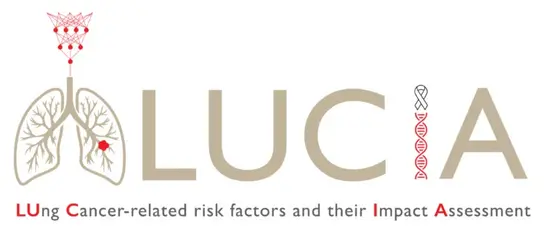LUCIA
Lung Cancer-related risk factors and their Impact Assessment

Lung cancer is the leading cause of death from cancer, and accounts for approximately 1.8 million deaths each year. Survival of lung cancer patients heavily depends on stage of diagnosis. Unfortunately, so far the majority of lung cancers are detected at an advanced stage only. Earlier detection by screening, in combination with prevention and reduction of cancer risk factors, are thus essential means to reducing lung cancer mortality.
The LUCIA consortium project aims to improve methods for lung cancer prevention, screening and diagnosis by working towards a more coherent understanding of both personal and external lung cancer risk factors, their interactions and the (biological) processes leading to the onset of lung cancer. The Division of Clinical Epidemiology and Aging Research of the DKFZ will perform epidemiological analyses using data from the 'ESTHER' cohort study, in collaboration with other cohorts, to help derive, develop, optimize, validate and compare lung cancer risk models. Multi-omics analyses to derive novel genetic and epigenetic risk scores will also be performed. The assessment of lung cancer risk factors and risk models will be used to inform EU-wide recommendations for the selection of participants for general population and precision screening, and to improve diagnostic technologies and methods.
The LUCIA consortium is led by the Technion University in Israel and involves 22 international partners, offering a broad range of expertise in lung cancer research, epidemiology and prevention, diagnostic technologies, medicine, artificial intelligence, ethics, as well as in EU policy and legal frameworks.
This project has received funding from the European Union's Horizon Europe research and innovation programme under grant agreement no. 101096473.